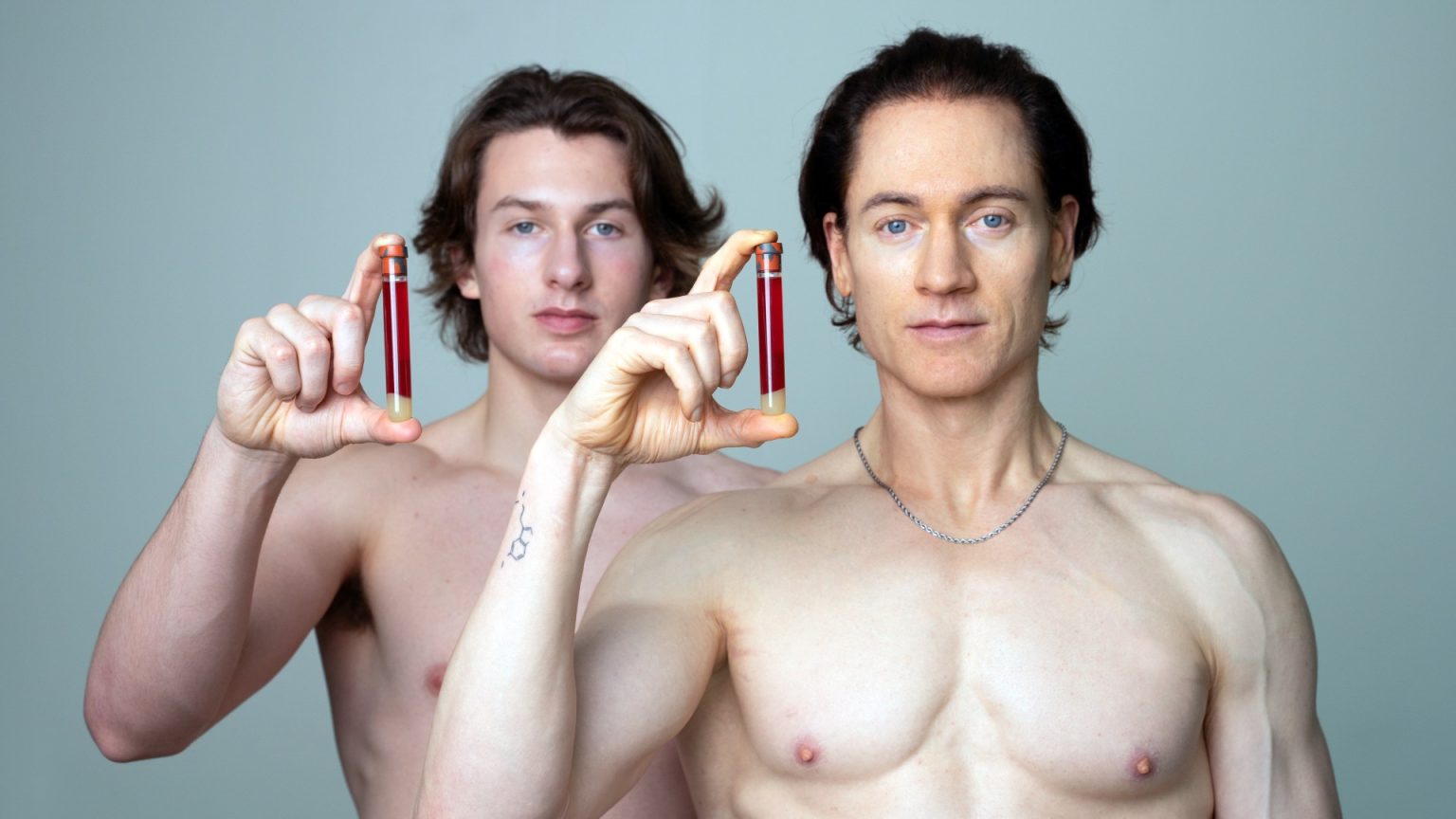Bryan Johnson, a Silicon Valley tech billionaire and self-proclaimed anti-ageing influencer, has garnered significant attention for his radical biohacking practices, which he believes will allow him to achieve immortality. At the core of his regimen is a controversial blood transfusion procedure involving his teenage son, Talmage. Johnson receives regular infusions of his son’s plasma, separated from other blood components, in the belief that the younger blood will rejuvenate his aging cells and reverse the effects of time. This unconventional approach forms just one part of a meticulously structured and exorbitantly expensive lifestyle dedicated to halting the aging process.
Johnson’s daily routine, bordering on obsessive, is a carefully orchestrated symphony of procedures, supplements, and restrictions. He adheres to a rigid sleep schedule, retiring by 8:30 pm each night and meticulously tracking his sleep stages. His diet, strictly vegan and limited to 2,000 calories per day, eliminates all junk food. Exercise is a joint endeavor with his son, beginning at 5 am each morning. Beyond these core elements, Johnson’s regimen encompasses a diverse array of interventions, including red light therapy, application of multiple skin creams, tea tree oil teeth rinsing, and a battery of medical tests, including regular MRIs, ultrasounds, blood tests, and colonoscopies. This comprehensive and costly approach, exceeding $2 million annually, underscores Johnson’s fervent commitment to his anti-aging pursuit.
The father-son dynamic at the heart of Johnson’s biohacking journey has drawn both fascination and criticism. While Talmage outwardly supports his father’s quest, even referring to himself as an “immortal 18-year-old” on social media, the nature of their relationship has raised concerns. Some observers perceive Johnson’s involvement of his son as blurring the lines between parental care and self-interest, viewing Talmage as an extension of his father’s ambition rather than an independent individual. The shared routines and the unique blood transfusion procedure further amplify this perception, casting a shadow over an already controversial endeavor.
Johnson’s conviction in his ability to transcend mortality has been met with skepticism from medical professionals and biohacking critics. Experts caution against the unproven nature of many biohacking practices, emphasizing the importance of evidence-based approaches to health and well-being. They warn that the “silver bullet” mentality often associated with biohacking can lead individuals down a path of unverified and potentially harmful interventions. Professor Tim Spector, a prominent voice in the field of gut health, advocates for a more holistic and scientifically grounded understanding of human biology, emphasizing the body’s innate ability to maintain health through proper nourishment and care. Similarly, Dr. Mohammed Enayat, a specialist in preventative medicine, advises caution against adopting extreme measures, emphasizing the importance of a balanced and personalized approach to health.
Despite the criticism, Johnson remains steadfast in his belief that rapid technological advancements will enable radical life extension beyond current limitations. He views himself and his son as interconnected representations of past and future selves, engaged in a shared pursuit of longevity. Recent tests, according to Johnson, indicate a five-year reduction in his biological age and a slowing of cellular aging, reinforcing his conviction. However, these claims have not quelled the ongoing debate surrounding his methods, with many questioning the ethical implications and the potential for unintended consequences.
The narrative woven around Bryan Johnson’s biohacking pursuits presents a complex tapestry of scientific ambition, familial ties, and ethical dilemmas. His quest for immortality, fueled by technological optimism and a substantial financial investment, challenges conventional notions of aging and death. While his dedication to pushing the boundaries of human lifespan may inspire some, the unconventional nature of his methods, particularly the involvement of his son, raises profound questions about the limits of scientific intervention and the potential for exploiting familial relationships in the pursuit of personal goals. The ongoing debate surrounding Johnson’s biohacking practices underscores the need for careful consideration of the ethical and societal implications of emerging technologies aimed at extending human life.




